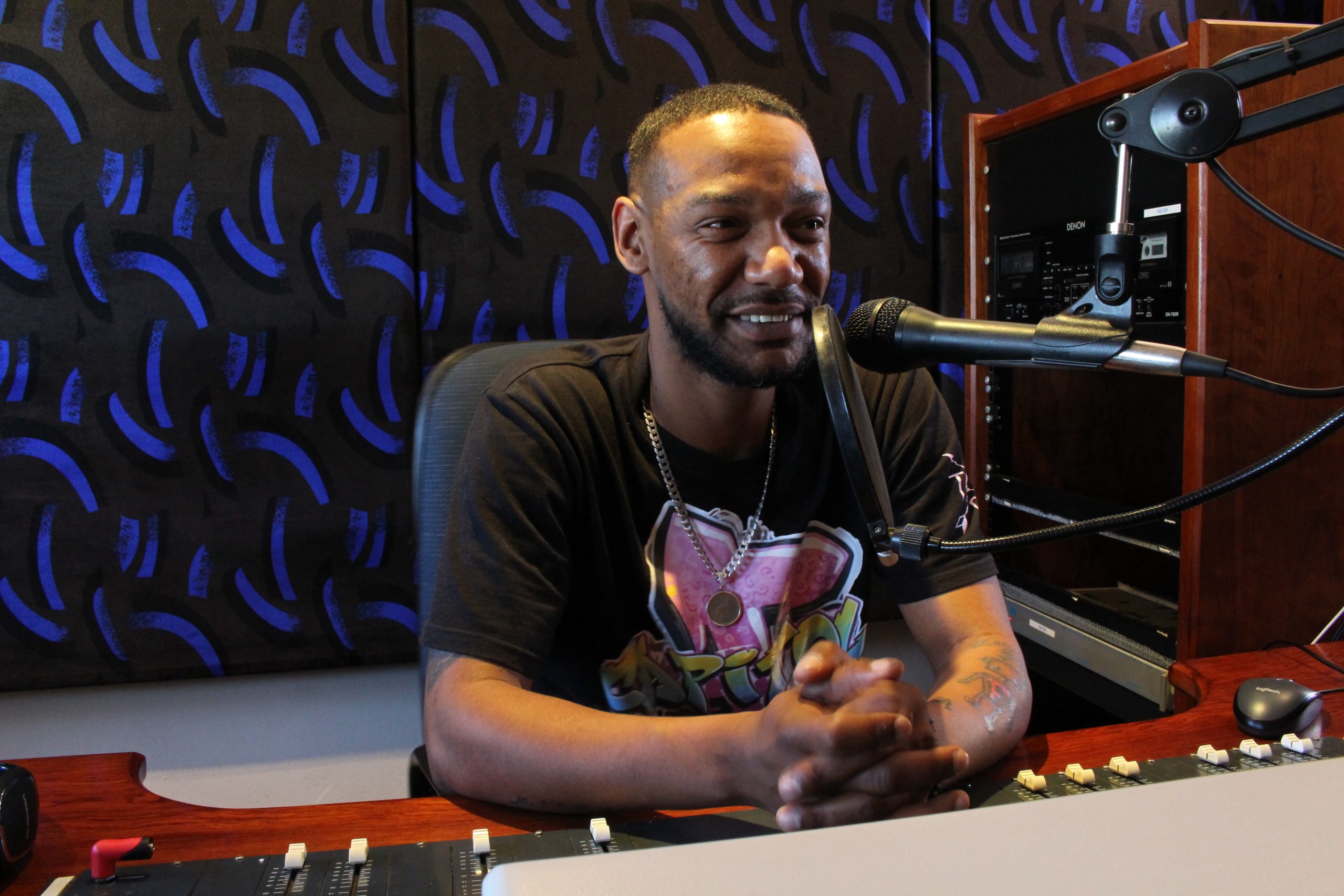He calls himself Capitol F, and he’s in it for the long haul
Gliding down the line on wheels of steel, hefting up the foothills from Hotazel, bridging the spans of the Orange and Olifants Rivers, coasting through the flatlands, blaring through the Bobbejaanberg Tunnel, the mighty engine hauls its precious cargo from the middle of the Kalahari desert to the edge of the sea.
It is the longest production train in the world, a shongololo of five locomotives and 342 wagons, each bearing two truckloads of silvery-grey manganese from the Sishen open cast ore mine in the Northern Cape.
On the final stretch of the epic trek to the port of Saldanha, in the driver’s cab of a Class 15E electric locomotive, we find a young man by the name of Franklin Floris.
He sits on a reclining seat, cloistered in monastic silence, but he cannot afford to let his concentration lapse for even a moment.
“There’s a lot of maths that goes into controlling and operating a train,” he says. “You’ve got 41,000 tons moving behind you. One little mistake, and it can all go ka-boof.”
At the end of his shift, Franklin climbs down from the cab, and returns to his family home in Vredenburg, between Langebaan and Paternoster on the West Coast. Here, in his small mixing-studio, he shifts track from the rails, putting on headphones, switching on the back-beat, and letting the lyrics flow.
“I’ve got the kind of love in my heart that you will never find,” he rhymes. “Many people try to fight their demons, I make friends with mine.”
Like a superhero slipping into costume, Franklin Floris, train driver, becomes Capitol F, one of the fastest-rising rap artists on the South African circuit.
His biggest hit to date, No Apologies, with its mellow rhythms, catchy chorus, and rapid-fire lyrics, delivered in salty, colloquial Afrikaans with sprinklings of English, epitomises his homegrown, from-the-heart style of confessional storytelling.
“We had some kind of issues, me and my fiancé, where I messed up a bit,” he says of the song. “I’m not the kind of person who typically would go out and argue with someone. I’d rather close down, lock myself in the room I use as a studio, and afterwards, when I’m finished, I’ll just call her and tell her. That is how I get out whatever I need to say.”
Franklin has been using rap as a means of creative expression and catharsis since his schooldays, when he was a star performer on the stage as much in the classroom.
As headboy in his final year, he wowed the assembly with an on-point rendition of Always On Time, by the American rapper, Ja Rule, setting the scene for his own sideline as a songwriter.
His collaborator back in the day was his younger sister, Janine, who now goes by her own stage-name, Missy. They recorded their free-style raps on C60 cassettes, playing them over and over until the tape stretched into hiss and static.
Later, Franklin joined forces with a couple of friends to form a crew called The Low Riders, after the practise of cutting the springs of a car to lower the suspension.
He had planned after school to enrol for a degree in mechanical engineering, but as he says, “life happened”. His parents couldn’t afford the fees, so he took on a trade instead, qualifying as a fitter and turner before moving to Transnet as a driver’s assistant.
In his spare time, in his makeshift studio, using an upside-down broom as a microphone stand, he recorded his first songs, drawing inspiration from his own experiences and emotions.
“If someone listens to one of my songs, and they don’t ask me, is this about you? Is this what really happened? Then I won’t release the song,” he says.
But as close to home and heart as his songs may be, he hopes and trusts they will hold meaning for other people too.
On I’ll Always be There, about a parent’s responsibilities to look after their children, he has his own boys, Nahum, 7, and Ezhno, 3 in mind, and he dedicates a verse to his nephew, Leighton, who tragically died as a teenager. But the message goes out to all of us: a society must take care of its most vulnerable members.
Along with two of his cousins, Franklin spent much of his childhood with his grandmother, Hilda, a strict matriarch who would scold you one moment, and console you with a lollipop the next.
He credits his grandma for his own community spirit, which finds an organised outlet through an NGO called The Open Minded, based in Saldanha Bay.
“We clean beaches, we help to set up soup kitchens, and we help to develop and uplift the youth of our community,” he explains.
If he has anything to share in that regard, it is because he has made his own mistakes, his own wrong choices, along the way. But he doesn’t allow himself the luxury of regret.
“I always say, if there’s nothing you can do about it, why stress about it? If I was to go back five years and change the slightest thing, I wouldn’t be where I am today. The train would have gone in a whole different direction.”
An artist learns to turn his mistakes into art, and while Franklin tells himself it would be safer not to leave his day job for now, he believes too that there is a world at the end of the line, beyond the port of call, that is waiting for Capitol F, the rapper from Vredenburg on the West Coast, to share the stories he has to tell.
For more fascinating stories about the remarkable people and places of the West Coast, watch Weskubewoners, brought to you by BrightRock, on kykNET every Thursday at 21:00.

Leave a Reply